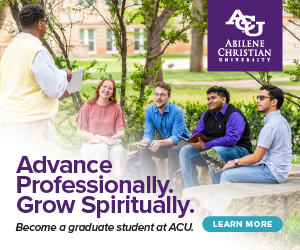College is all about adjustment, as we each come from different, diverse backgrounds. Change is healthy, and adjustment is essential to the growth that we undergo when we embrace change.
However, in order for real change to occur, we must have healthy, safe environments with everything on the table. Part of a healthy environment is the foundation of cultural awareness and cultural competency, especially on a campus where 63.9 percent of the student body is white and tends to ignore this topic.
Recently, cultural awareness has been discussed heavily among students, faculty and staff alike.
ACU has a tendency of brushing serious issues like cultural insensitivity under the rug. Even when groups break standards of basic cultural respect, like social clubs imitating Bantu knots during the pledging process, our administration says and does nothing.
But what does cultural awareness really mean? And how do we take cultural awareness a step further to cultural competency? Why is this especially important as Christians?
Dr. Patty Goodman, a cross-cultural communication faculty member and researcher at Northeastern University, defines cultural awareness as “an understanding of one’s self and how one needs to adjust to the environment and ecosystem that he or she is in.”
Cultural awareness is vital to a thriving college community. We each came to college with different backgrounds, and we must learn to step outside of our own context to understand what affects others on our campus. The reality of ACU’s demographics calls for serious conversations about this topic.
Thankfully, there are programs that occur on our own campus to promote cultural awareness, and give students the opportunity to understand cultures outside of their own. For example, Sundaes on Mondays is an ongoing event conducted by the Office of Multicultural Affairs (OMA) on the second Monday of every month to discuss relevant cultural topics and provide information for students. In the past, Sundaes on Mondays has covered topics such as police brutality, cultural sensitivity and immigration.
OMA hosts a variety of student organizations that all promote cultural awareness, and provides a community for students to have these vital discussions. Whether you feel your culture is well-understood on campus or not discussed at all, every person should use their voice and join the conversation.
However, for real change to occur, cultural awareness must be taken a step further to cultural competency. The National Education Association defines cultural competency as “the ability to understand the within-group differences that make each student unique, while celebrating the between-group variations that make our country a tapestry.”
Beyond simply being aware of other cultures, competency means positively engaging with people of other cultures and celebrating differences that make up our student body. Attending events, while it does provide awareness, does not equate to competency.
Competency means appreciation and respect of other cultures. Competency means having an open mind and actively stepping out of your comfort zone as part of the learning process.
It is active, and continual.
Both cultural awareness and cultural competency are practices that are ongoing, and crucial for any community to thrive.
Beyond encouraging a safe environment for all students, cultural awareness and competency are an essential part of Christianity.
Singer and song-writer Jordy Searcy recently released a song about cultural sensitivity as part of the Christian faith, featuring a reading by Dajanae Cole. In the song, Cole says, “I don’t want your colorblind Christianity. You know God as the creator of colors except for when it come to me.”
Cole makes the point that Christianity is not meant to be colorblind. Colorblind Christianity is loving and accepting others, but without a recognition or respect of other cultural identities. Although God calls us to love everyone equally, love does not turn a blind eye but instead understands and celebrates differences.
We should see color and culture, and respect the differences that make up each human’s identity. We are all created as image-bearers of God, and we bear this image across different cultures and ethnicities.
As a campus, we can do a better job of approaching the lack of cultural appreciation in our community. This starts with us, and this starts with respect.

